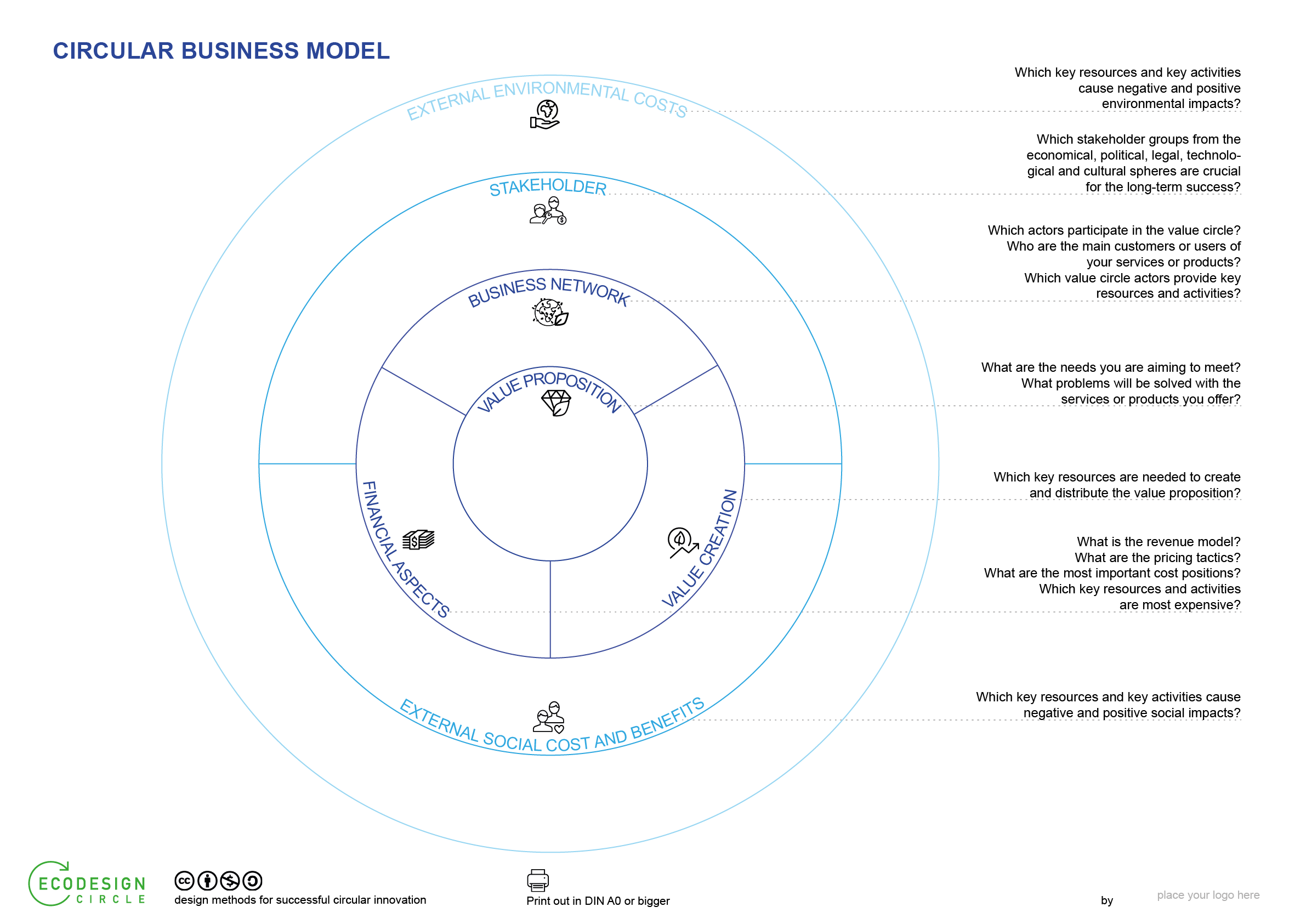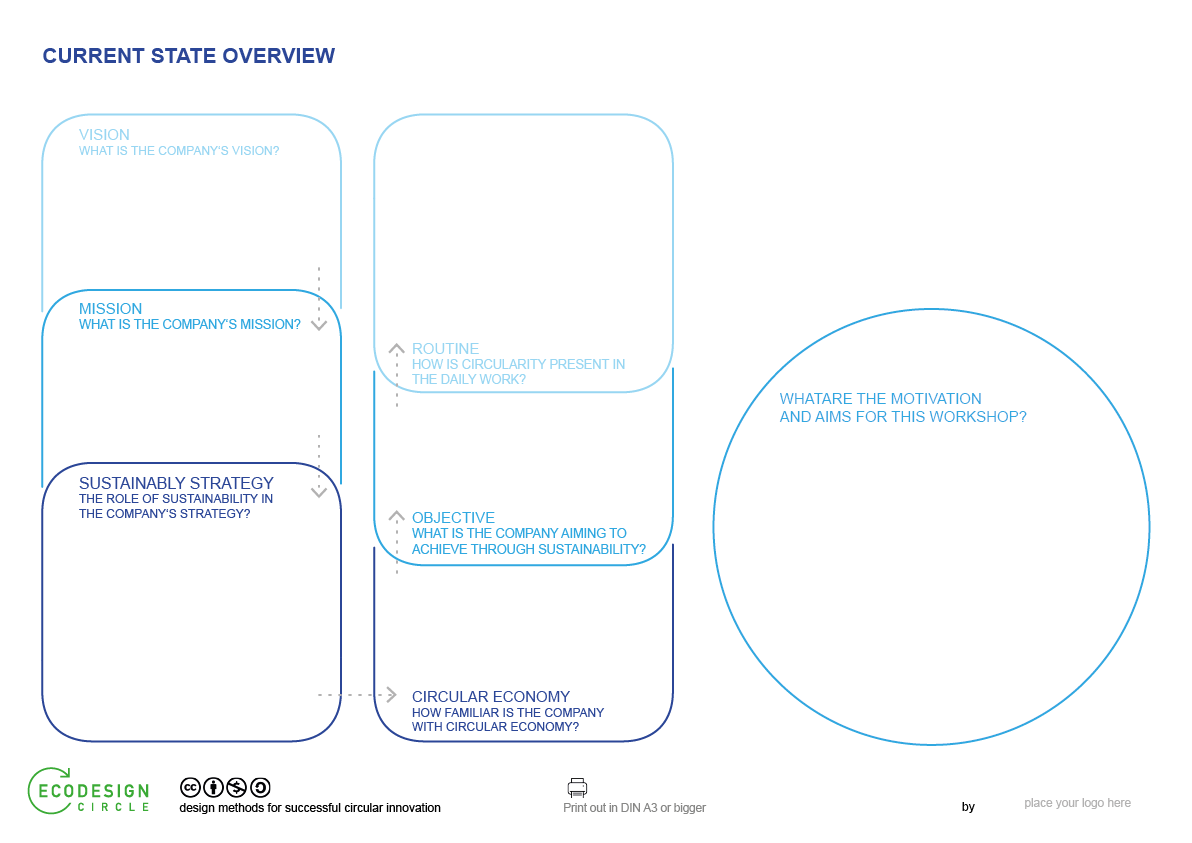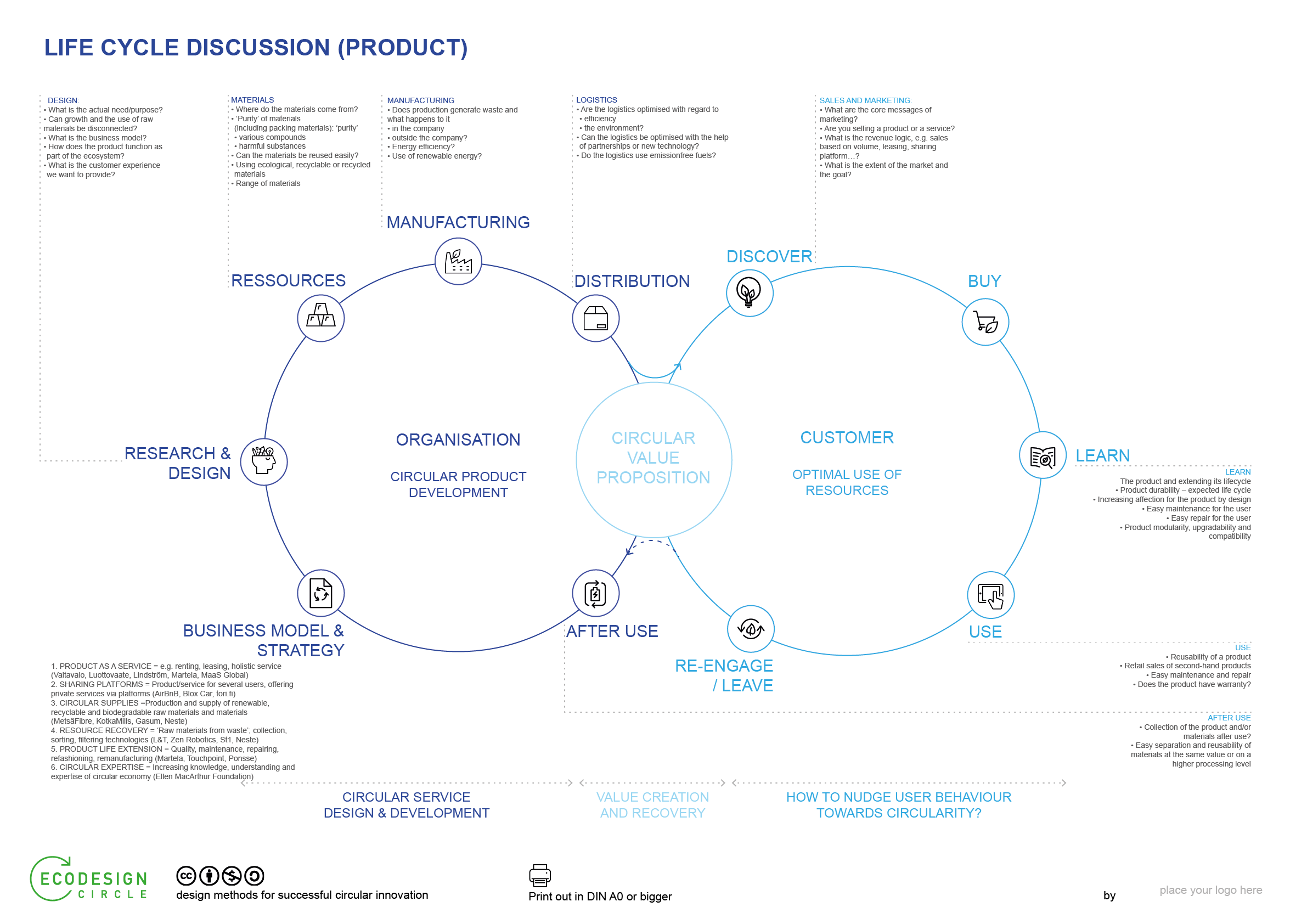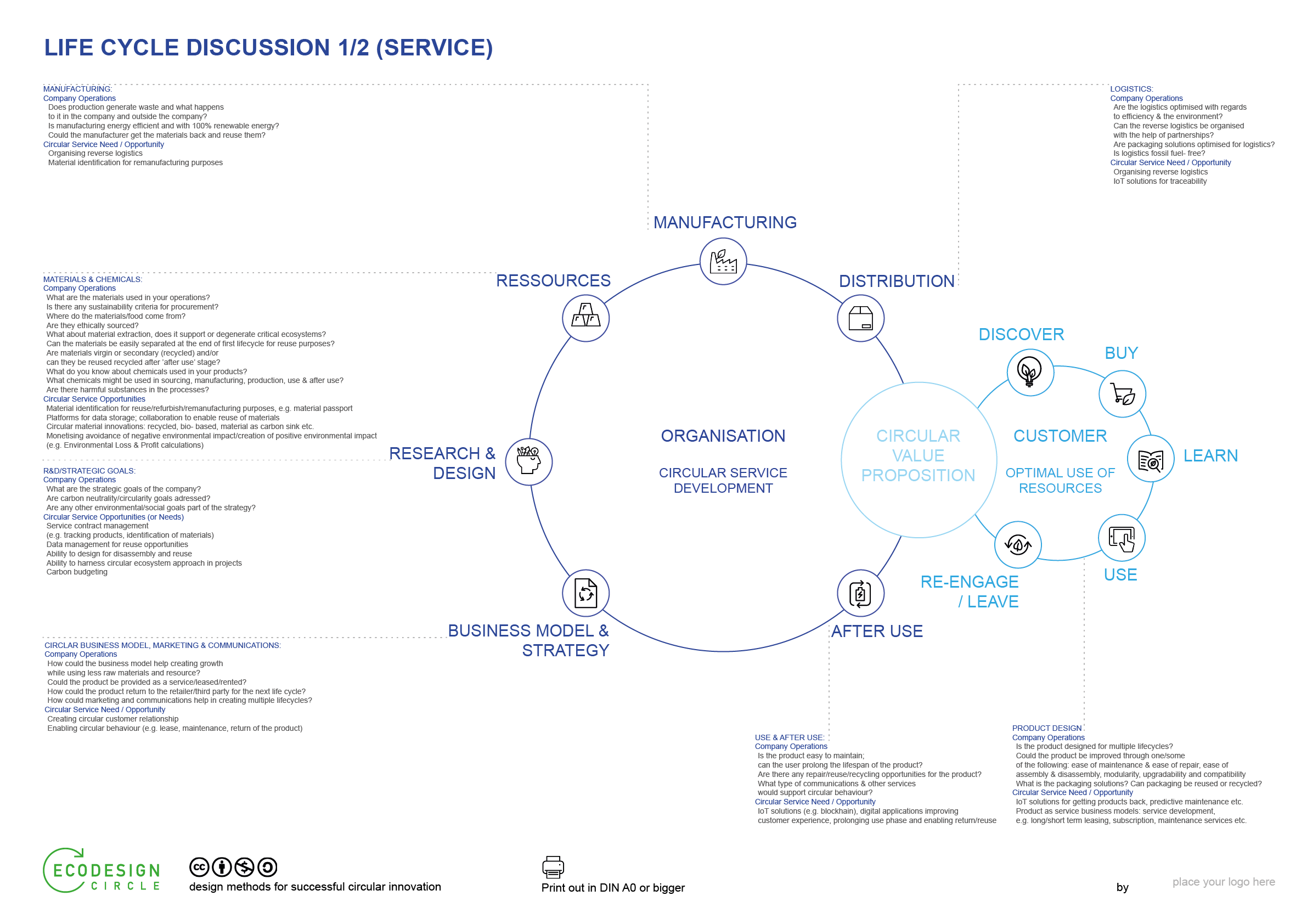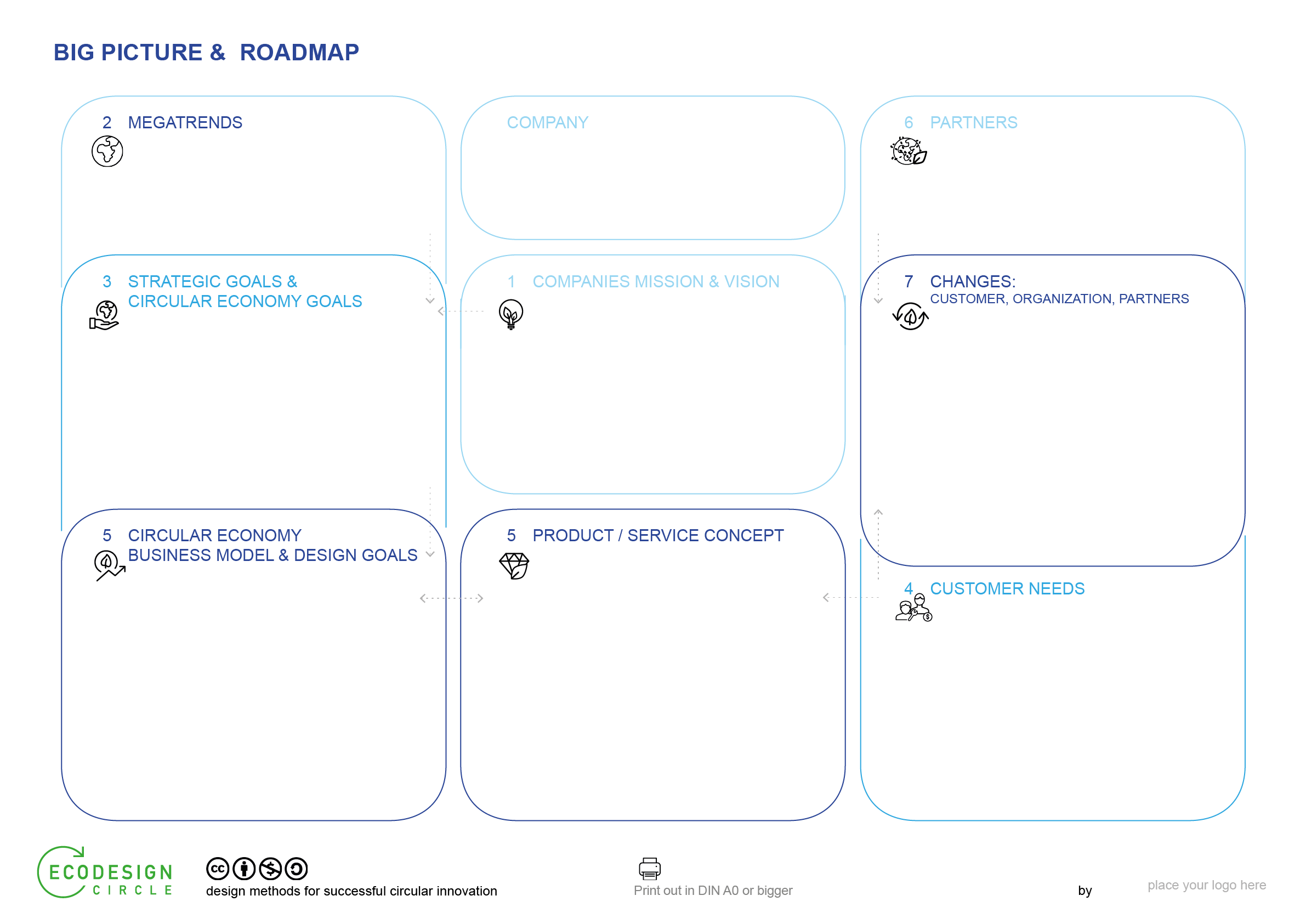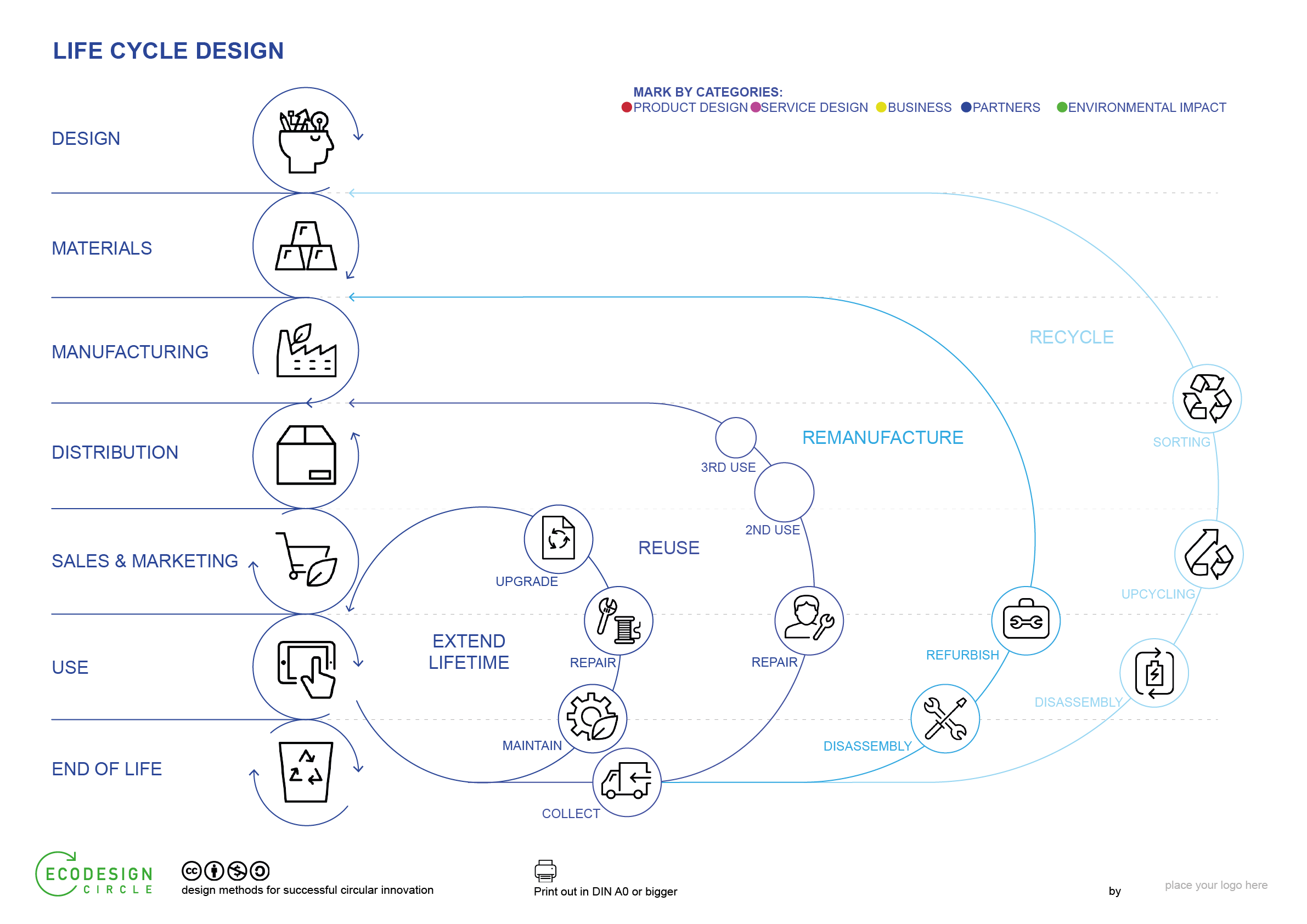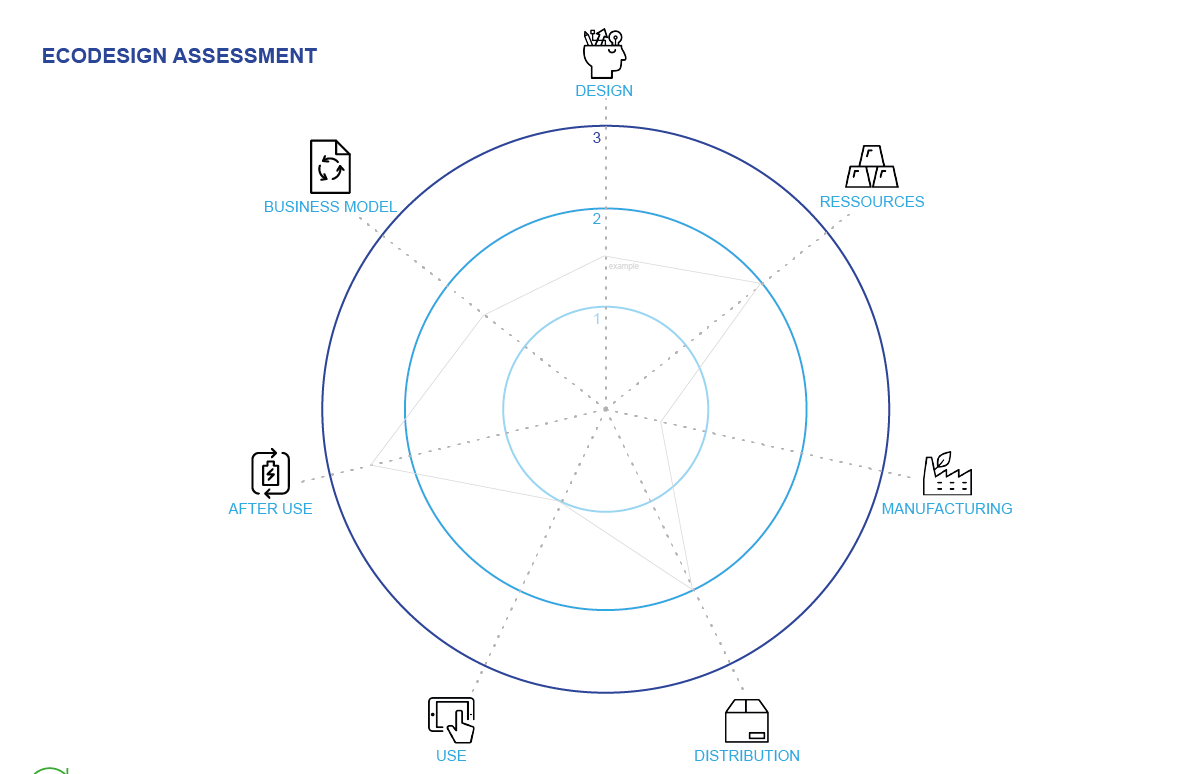Learn how to change your business model to circular and secure your financial future.
The global economy by 2050 could benefit from more effective resource use by USD 2 trillion a year. (UNEP, 2017)
The Ellen MacArthur Foundation calculated that in the EU, in the sectors of complex medium-lived products (such as mobile phones and washing machines), the annual net-material cost savings opportunity mounts up to USD 630 billion.
Let’s untap this potential!
Climate related risks, opportunity costs and lost value
The 2019 chip shortage – directly related to droughts (and the climate crisis) and political friction forced industries from all sectors to stop production. It was a forecast of how mismanagement of resources can impact entire supply chains causing loss in revenue and increasing shadow prices. But there are more financial risks – and benefits – related to the Circular Economy:
- Investors are searching for sustainable investments. With the EU sustainable finance taxonomy being installed and ESG benchmark criterias being inforced in more and more sectors, any economic activity will be measured against its environmental, social, and governance impact. It’s the best time for circular investments and fund-raising.
- Circular solutions offer new profit opportunities. iFixit – providing repair manuals and kits is growing 30 percent year over year and topped $21 million in sales in 2016. Without having an own product, the service platform profits from the often not existing repair services for electronic products and a growing customer awareness and willingness to maintain products.
- Circular supply chains reduce volatility, opportunity costs and loss of value. Untapping new – circular – sources for components and materials, companies can reduce their risks of volatile raw material prices and become independent from supply chains disrupted by natural desasters or political friction.
- Sustainable industries are the fastest growing market. Unilever reveals that its most sustainable brands grew 46% faster than the rest of the business and delivered 70% of its turnover growth.
Circular business models by design
Consumers demand for more sustainable products and transparency about the environmental footprint, investors and regulations require companies to take environmental and social responsibilty, adapt their corporate governance and constantly measure and prove their impact.
Consumption patterns, technological progress and data availability put companies under the pressure to adapt and re-invent themselves.
Our strategic design methods adapted to circular principles support organisations to identify their opportunities within the changing environment and pro-actively turn demands into strategic advantages.
Explore the tools to innovate circular business and revenue models
or discover more opportunities within circular design for you:
Discover new ways to improve the sustainability performance of your company.
Learn as a designer to implement circular economy to your work and sell it to your customers.
- 318
- 316
- 210
- 230
-
- Mural
Circular Business Model
Is the business model sustainable economically? The Circular Economy requires new paradigms of doing business but once old patterns are overcome, new opportunities for prosperous business models that are beneficial for all are manifold. Use them!
Tool DetailsBelongs to:- Learning Factory Learning Factory
-
- Mural
Current State Overview
Create a common understanding of the objectives of an organisation and the circular maturity. Is sustainability integrated in the company’s strategy? How? Get a first idea of maturity and circular potential. Executing this pre-task will ensure that a workshop has a smooth entry and framing for everyone. There’s one task for the team lead and another one for all participants.
Tool DetailsBelongs to:- Sprint Sprint
-
- Mural
Life Cycle Discussion
Asking the right question is the first step towards change! The canvas reveals needs for each phase of the life cycle. By asking crucial questions you can reveal and create many possibilities to increase positive impact and circularity.
Tool DetailsBelongs to:- Sprint Sprint
-
- Mural
Life Cycle Model
Asking the right question is the first step towards change! The two canvases reveal needs and questions around each phase of the life cycle and indicate many possibilities to increase positive impact and circularity.
Tool DetailsBelongs to:- Sprint Sprint
Supporting tools
- 322
- 320
- 231
- 228
- 227
-
- Mural
Big Picture Setting
Where are we now, where do we want to be? This exercise aims to reflect the companys’ current vision and mission for the future. An examination of (environmental) megatrends and sustainability goals reveals actions and steps that need to be taken and potential to spur competitive advantages.
Tool DetailsBelongs to:- Sprint Sprint
-
- Mural
Life Cycle Design
Develop a holistic product-service-system, discover and close gaps in the loops. To design products and services in a circular way, a holistic circular concept needs to be in place at the very beginning of the development. How can loops be closed, what operational requirements are needed, which partners can supply solutions and how can they benefit? This method helps ideate and develop solutions for all loops and the initial (product) design.
Tool DetailsBelongs to:- Learning Factory Learning Factory
-
Ecodesign Audit
To improve eco-innovation and eco-design performance organisations need a clear understanding of both their current and potential innovation and design capability as well as suitable strategies and practices. Based on expertise and experience, the audit covers different ecodesign/circular design aspects. It focuses on small and mid size organisations (SMEs) and aims to establish a basis for ramping up the circular product, service and business model innovation.
Tool Details -
Ecodesign Assessment Product
Understand the negative impact and potential for improvement by assessing the current solution and identifying opportunities. This tool can be used in different ways: to assess a benchmark or the current product or services or to compare ideas and concepts against a current solution.
Tool DetailsBelongs to:- Learning Factory Learning Factory
-
- Mural
Ecodesign Assessment Services
Understand the negative impact and potential for improvement by assessing the current solution and identifying opportunities. This tool can be used in different ways: to assess a benchmark or the current product or services or to compare ideas and concepts against a current solution.
Tool DetailsBelongs to:- Learning Factory Learning Factory
You need help changing your business model to circular?



